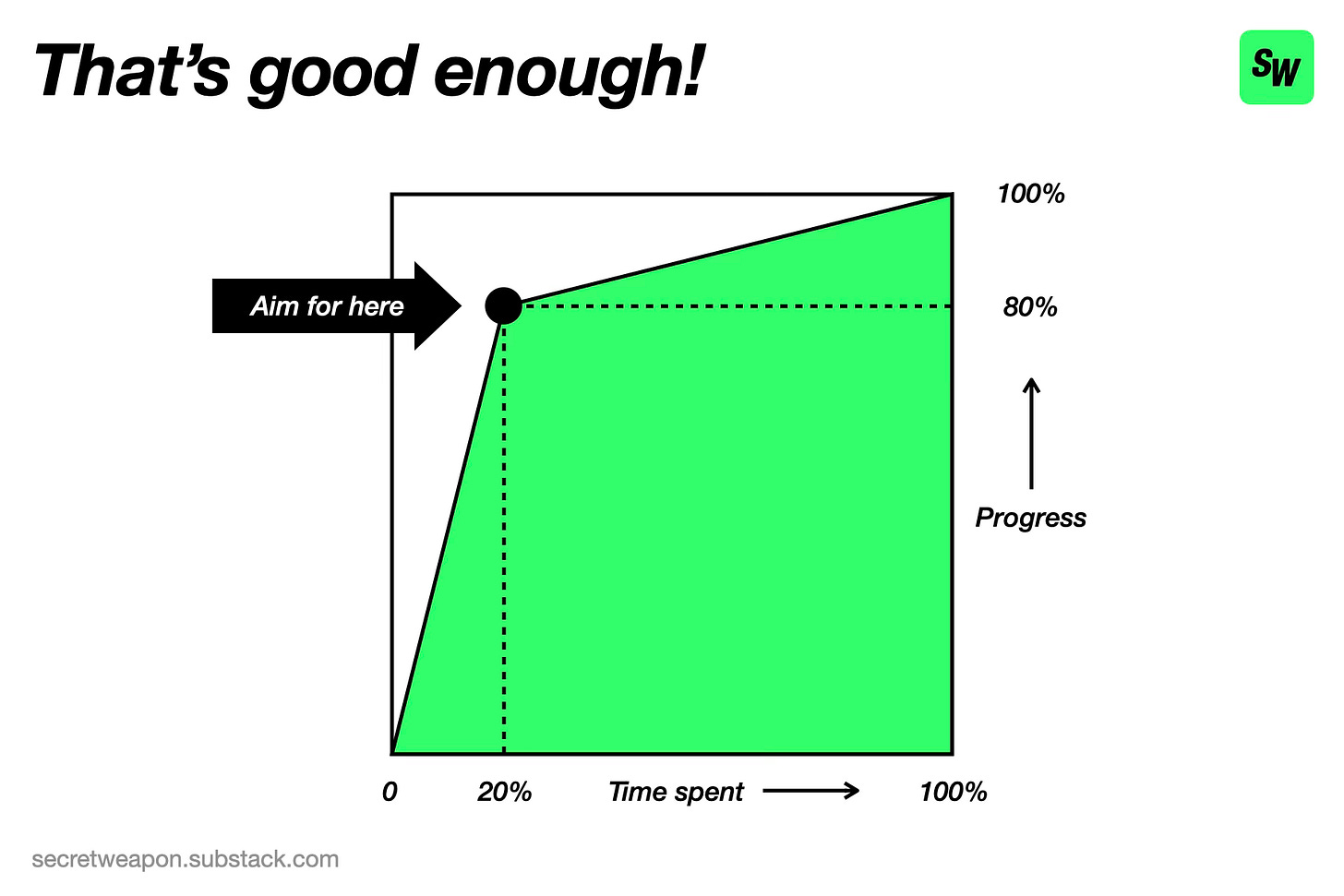Done is better than perfect
Call it and move on when diminishing returns set in
Thanks for subscribing! It’s still early days for this newsletter – I’d really appreciate your help to reach new readers, so please do share this post or recommend Secret Weapon to a friend.
Now, in today’s edition we’re recapping one of the most powerful hacks of all for maximising impact when time is limited: knowing when to stop.
High performers like to do things to high standards. But if you’re a high performer, the opportunity cost of your time is super high too. Hours spent polishing something in pursuit of perfection is time that can’t be spent doing something else.
So how do you know when to stop one thing and move on to the next?
Easy: use the 80/20 rule. This rule-of-thumb says people typically get 80% of the way to completing non-trivial tasks in the first 20% of time spent on them.1
After this you are into pretty drastic diminishing returns, expending an awful lot of incremental effort to push something from 80% complete to 100% complete.
The key to allocating your time effectively is being able to spot the turning point. Once you reach it, it pays to be highly intentional about what happens next.
Some tasks do need to be pursued all the way. In this case you should think carefully about whether you're the best person to finish the job, or if instead it would be more efficient to hand it over to someone else.
But in most cases what you have in hand will be good enough, and more time spent refining it will be hard to justify. After all, in the time it would take to reach 100% you could get four other projects from zero to 80% – and that's a lot of impact to leave on the table.
This is a special case of the Pareto Principle – an observation that for many outcomes, 80% of the consequences come from 20% of the causes.


